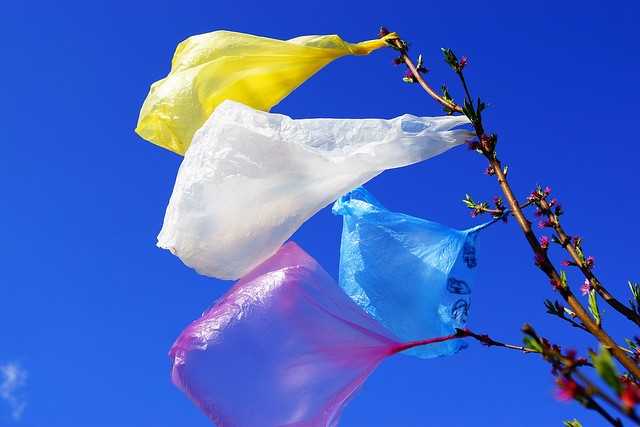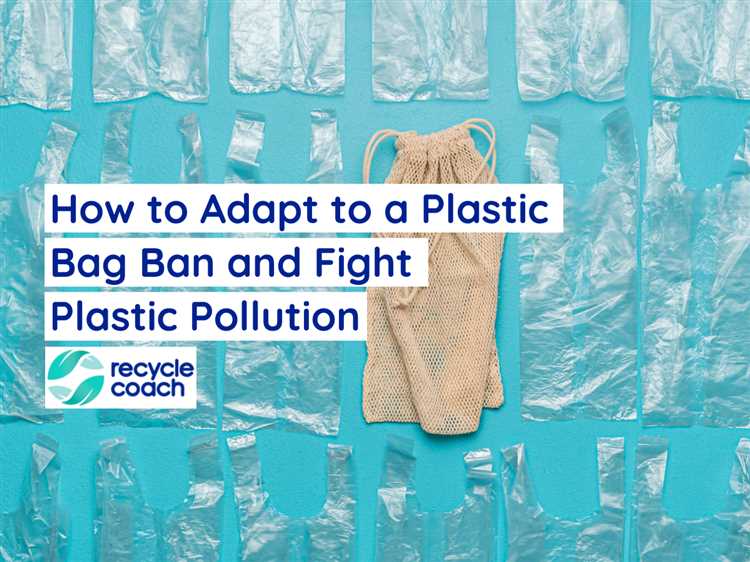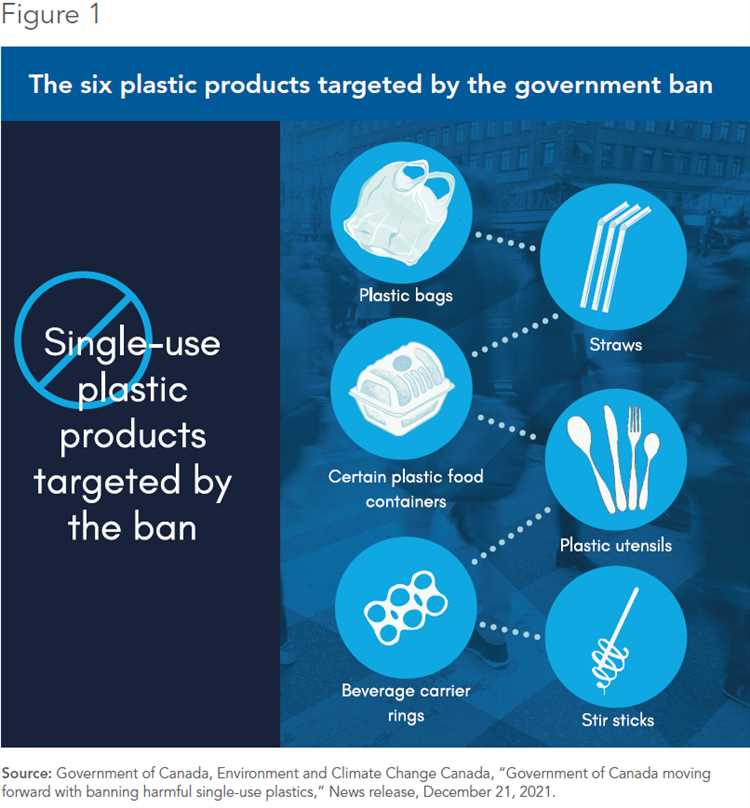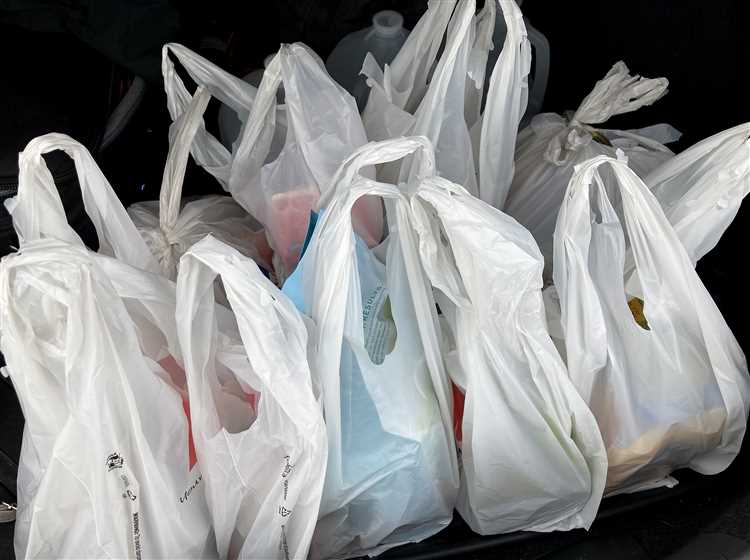
Plastic bags have become a ubiquitous presence in our daily lives, but their convenience comes at a heavy price for the environment. The detrimental effects plastic bags have on climate change have prompted many countries and cities around the world to ban or limit their use. This article will explore the impact of banning plastic bags on climate change and why such actions are crucial for a sustainable future.
Plastic bags are made from non-renewable resources such as petroleum, which requires significant amounts of energy for extraction and processing. The production of plastic bags also generates greenhouse gas emissions, contributing to the accumulation of greenhouse gases in the atmosphere. These gases trap heat from the sun, leading to global warming and climate change.
Furthermore, plastic bags are not biodegradable and can persist in the environment for hundreds of years. When discarded improperly, they end up in landfills or pollute waterways, where they pose a serious threat to wildlife. Marine animals often mistake plastic bags for food, leading to ingestion and entanglement, which can have devastating consequences for their health and survival.
By banning plastic bags, countries and cities can significantly reduce their carbon footprint and mitigate the impact of climate change. Instead of using plastic bags, consumers can opt for reusable alternatives such as cloth bags or paper bags made from sustainable sources. This transition to more eco-friendly options not only reduces plastic waste but also encourages a shift towards a circular economy, where resources are used more efficiently and in a sustainable manner.
In conclusion, the banning of plastic bags plays a crucial role in addressing climate change and protecting the environment. By eliminating or reducing the use of plastic bags, we can reduce greenhouse gas emissions, decrease plastic pollution, and promote a more sustainable society. It is imperative that individuals, businesses, and governments work together to implement and enforce policies that prioritize the long-term health of our planet.
- The Effects of Plastic Bags on the Environment
- Plastic Bags and Greenhouse Gas Emissions
- Extraction of Fossil Fuels
- Manufacturing Process
- The Role of Plastic Bags in Ocean Pollution
- The Environmental Impact
- The Need for Change
- Alternatives to Plastic Bags
- The Positive Impacts of Banning Plastic Bags
- 1. Reduction in marine pollution
- 2. Decrease in greenhouse gas emissions
- 3. Conservation of non-renewable resources
- 4. Promotion of sustainable alternatives
- The Importance of Individual Actions in Reducing Plastic Bag Usage
- 1. Raising Awareness
- 2. Choosing Reusable Alternatives
- Q&A:
- How do plastic bags contribute to climate change?
- What are the benefits of banning plastic bags?
- Has banning plastic bags been effective in addressing climate change?
- Are there any drawbacks to banning plastic bags?
- What can individuals do to reduce their use of plastic bags?
- How do plastic bags contribute to climate change?
- What are the alternatives to plastic bags?
The Effects of Plastic Bags on the Environment
Plastic bags have become a ubiquitous part of our daily lives, but their impact on the environment cannot be ignored. Here are some of the major effects plastic bags have on our environment:
- Pollution of Waterways: Plastic bags are often not disposed of properly and end up in our rivers, lakes, and oceans. They can take hundreds of years to decompose, and during that time, they release harmful toxins into the water. This pollution poses a significant threat to aquatic life and ecosystems.
- Threat to Wildlife: Marine animals are particularly vulnerable to the dangers of plastic bags. Many creatures mistake them for food and consume them, leading to choking, internal injuries, and even death. Plastic bags can also entangle animals, causing them to suffocate or become unable to move or eat.
- Impact on Landfills: Plastic bags make up a significant portion of landfill waste. Because they are not biodegradable, they remain in landfills indefinitely. As landfills fill up, valuable land is taken up by non-degradable plastic, contributing to the loss of natural habitats and the emission of greenhouse gases.
- Energy Use and Climate Change: The production and transportation of plastic bags require significant amounts of energy, primarily derived from fossil fuels. This energy consumption contributes to greenhouse gas emissions and climate change. By reducing our reliance on plastic bags, we can reduce our carbon footprint and mitigate the effects of climate change.
- Destruction of Natural Resources: Plastic bags are made from non-renewable resources such as petroleum and natural gas. The extraction and processing of these resources have negative environmental impacts, including habitat destruction, water pollution, and air pollution. By reducing our demand for plastic bags, we can help conserve these valuable resources.
These are just a few of the many detrimental effects that plastic bags have on the environment. It is evident that banning plastic bags can have a positive impact on our planet and contribute to the fight against climate change.
Plastic Bags and Greenhouse Gas Emissions
Plastic bags have a significant impact on greenhouse gas emissions, contributing to climate change. The production of plastic bags involves the extraction of fossil fuels and the release of carbon dioxide emissions into the atmosphere. Additionally, the manufacturing process for plastic bags releases greenhouse gases such as methane and nitrous oxide.
Extraction of Fossil Fuels
The production of plastic bags heavily relies on fossil fuels, particularly petroleum. The extraction and refining of petroleum result in the release of carbon dioxide and other greenhouse gases. These gases contribute to global warming and the overall increase in greenhouse gas emissions.
Manufacturing Process

The manufacturing process for plastic bags involves the conversion of petroleum-based materials into plastic. This process can release greenhouse gases such as methane and nitrous oxide, which have a much higher global warming potential compared to carbon dioxide. Methane, in particular, is a potent greenhouse gas that contributes significantly to climate change.
| Greenhouse Gas | Global Warming Potential (GWP) |
|---|---|
| Carbon Dioxide | 1 |
| Methane | 25 |
| Nitrous Oxide | 298 |
By using and disposing of plastic bags, individuals contribute to the overall increase in greenhouse gas emissions. The negative environmental impacts of plastic bags make it imperative to find alternative solutions and reduce their usage to mitigate climate change and protect the planet.
The Role of Plastic Bags in Ocean Pollution
Plastic bags have become a significant contributor to the growing issue of ocean pollution. These bags are made from non-biodegradable materials, which means they do not break down naturally and are not easily recycled. As a result, plastic bags often end up in the ocean, where they pose a serious threat to marine life and ecosystems.
One of the main problems with plastic bags is their durability. Due to their lightweight and buoyant nature, these bags can easily be carried by wind and water currents, eventually finding their way into the ocean. Once in the water, plastic bags can entangle marine animals such as turtles, dolphins, and whales, causing injury or even death. Additionally, marine animals may mistake plastic bags for food, leading to ingestion and subsequent internal injuries.
The Environmental Impact
The presence of plastic bags in the ocean has severe consequences for ecosystems. These bags can smother and suffocate coral reefs, disrupting their delicate balance and hindering their ability to provide habitats for various marine species. Plastic bags can also hinder sunlight penetration into the water, affecting photosynthesis and leading to a decrease in oxygen levels for marine organisms.
Furthermore, the toxic chemicals present in plastic bags can leach into the water, posing a threat to the health of marine life. These chemicals may disrupt hormonal systems in marine animals and cause reproductive issues. As plastic bags break down into smaller microplastics, they can be ingested by small organisms and enter the marine food chain, potentially exposing humans who consume seafood to these harmful chemicals.
The Need for Change

To mitigate the damage caused by plastic bags in the ocean, it is crucial to implement measures to reduce their usage and promote sustainable alternatives. Many regions around the world have already taken steps to ban or impose fees on plastic bags, resulting in a decrease in their consumption.
Encouraging individuals to use reusable bags and promoting initiatives such as recycling programs can significantly reduce the amount of plastic bags entering the ocean. Additionally, raising awareness about the detrimental impacts of plastic bags on marine ecosystems can help drive behavioral change and foster a sense of responsibility towards the environment.
By addressing the role of plastic bags in ocean pollution and taking proactive measures, we can contribute to the protection and preservation of marine life and ensure the health of our oceans for future generations.
Alternatives to Plastic Bags
As the detrimental effects of plastic bags on the environment become more apparent, the need for sustainable alternatives has never been greater. Fortunately, there are several options that can replace plastic bags and help mitigate climate change.
1. Reusable Cloth Bags: One of the most popular alternatives to plastic bags is reusable cloth bags. These bags are made from durable materials such as cotton or canvas and can be reused multiple times, reducing the demand for single-use plastic bags. Reusable cloth bags are not only environmentally friendly but also come in various sizes and designs, making them a stylish choice for carrying groceries, clothes, or other items.
2. Paper Bags: Another option is paper bags, which are biodegradable and recyclable. While paper bags do require trees to be cut down for production, they can be responsibly sourced from sustainably managed forests or even made from recycled paper. Furthermore, paper bags are sturdier than plastic bags and can be reused or repurposed after use.
3. Biodegradable Bags: Biodegradable bags are designed to break down naturally over time. These bags are made from materials such as plant-based plastics or biopolymers that can decompose in the environment without leaving harmful microplastics. While biodegradable bags are a step in the right direction, it is important to ensure that they are disposed of properly to benefit the environment fully.
4. Metal or Mesh Bags: Metal or mesh bags are another eco-friendly alternative to plastic bags. These bags are typically made from materials such as stainless steel or mesh fabric and are lightweight and durable. They are ideal for carrying fruits, vegetables, or other produce as they allow for airflow, keeping items fresh for longer periods.
5. Compostable Bags: Compostable bags are made from organic materials and can be broken down into compost, providing valuable nutrients to the soil. These bags are an excellent option for disposing of organic waste or carrying compostable materials. However, it is crucial to ensure that compostable bags are certified and properly processed to achieve their full environmental benefits.
By adopting these alternatives, individuals can make a significant impact in reducing plastic waste and combatting climate change. It is essential for governments, businesses, and individuals to work together to promote the use of these alternatives and create a more sustainable future.
The Positive Impacts of Banning Plastic Bags
Banning plastic bags has several positive impacts on the environment and climate change. Here are some of the key benefits:
1. Reduction in marine pollution

Plastic bags are one of the major contributors to marine pollution. When they end up in oceans and water bodies, they pose a significant threat to marine life. Sea turtles, dolphins, and other marine animals often mistake plastic bags for food and can suffer from serious injuries or even death as a result. By banning plastic bags, we can greatly reduce the amount of plastic waste that ends up in our oceans, protecting marine ecosystems and helping to preserve biodiversity.
2. Decrease in greenhouse gas emissions
Plastic bags are made from fossil fuels, and their production and disposal contribute to greenhouse gas emissions. By banning plastic bags, we reduce the demand for plastic production, which in turn reduces the extraction and consumption of fossil fuels. This leads to a decrease in greenhouse gas emissions, helping to mitigate climate change.
3. Conservation of non-renewable resources
The production of plastic bags requires significant amounts of non-renewable resources, such as crude oil and natural gas. By banning plastic bags, we can conserve these valuable resources and reduce our dependence on fossil fuels. This can have long-term benefits for the environment and help to build a more sustainable future.
4. Promotion of sustainable alternatives
Banning plastic bags encourages the use of sustainable alternatives, such as reusable bags made from natural materials like cotton or hemp. These alternatives are not only more environmentally friendly but also offer economic benefits. Reusable bags are durable and can be used multiple times, reducing the need for single-use plastic bags and promoting a culture of reusability.
In conclusion, the positive impacts of banning plastic bags on climate change and the environment are significant. By implementing and promoting such bans, we can protect marine life, reduce greenhouse gas emissions, conserve non-renewable resources, and promote sustainable alternatives. It is an important step towards creating a more sustainable and eco-friendly future.
The Importance of Individual Actions in Reducing Plastic Bag Usage

While government policies and regulations play a crucial role in mitigating climate change, individual actions are equally important in reducing plastic bag usage. Every individual has the power to make a difference by consciously choosing to minimize their reliance on plastic bags.
1. Raising Awareness
One of the most significant ways individuals can contribute to reducing plastic bag usage is by raising awareness about the negative environmental impacts of these bags. By educating friends, family, and colleagues about the importance of using reusable bags, individuals can inspire others to make environmentally conscious choices.
2. Choosing Reusable Alternatives
Individuals can make a significant impact by opting for reusable alternatives, such as cloth or canvas bags, for shopping trips. By carrying reusable bags, individuals can avoid the need for single-use plastic bags and contribute to reducing plastic waste. Additionally, choosing reusable alternatives can also save individuals money in the long run.
By incorporating small changes into daily routines, such as bringing reusable bags to the grocery store or refusing plastic bags at retailers, individuals can collectively make a substantial impact on reducing plastic bag usage.
It is crucial for individuals to understand that their choices matter and that by taking individual actions, they can contribute to a sustainable future.
Q&A:
How do plastic bags contribute to climate change?
Plastic bags contribute to climate change in several ways. First, their production process involves the extraction and processing of fossil fuels, which release greenhouse gases into the atmosphere. Second, plastic bags do not biodegrade easily and can persist in the environment for hundreds of years, releasing harmful chemicals as they break down. Lastly, the disposal of plastic bags in landfills also releases greenhouse gases as they decompose.
What are the benefits of banning plastic bags?
Banning plastic bags has several benefits for the environment and climate change. Firstly, it reduces the demand for fossil fuels, as plastic bags are made from petroleum. This helps to decrease greenhouse gas emissions associated with extracting and processing fossil fuels. Secondly, banning plastic bags encourages the use of reusable alternatives, such as cloth or paper bags, which have a lower carbon footprint. Lastly, it helps to reduce the amount of plastic waste that ends up in landfills and oceans, which can have detrimental effects on ecosystems and wildlife.
Has banning plastic bags been effective in addressing climate change?
Banning plastic bags has shown some effectiveness in addressing climate change. In areas where plastic bag bans have been implemented, there has been a noticeable decrease in the use and consumption of plastic bags. This reduction in plastic bag production and disposal has helped to reduce greenhouse gas emissions associated with their lifecycle. However, it is important to note that plastic bags are just one small part of the larger issue of climate change, and further measures and changes are needed to achieve significant impacts.
Are there any drawbacks to banning plastic bags?
While banning plastic bags has many benefits, there are also some potential drawbacks. One concern is the increased cost of alternative bags, such as cloth or paper bags, which can be more expensive to produce. This cost may be passed on to consumers, particularly those on low incomes. Additionally, some argue that banning plastic bags may lead to increased use of other single-use items, such as paper or biodegradable bags, which also have environmental impacts. Overall, the benefits of banning plastic bags outweigh these potential drawbacks, but they should be considered in the decision-making process.
What can individuals do to reduce their use of plastic bags?
Individuals can take several steps to reduce their use of plastic bags. Firstly, they can bring their own reusable bags when shopping. Investing in durable and foldable bags that can easily be carried in a purse or pocket can help make this a habit. Secondly, individuals can avoid using plastic bags for non-essential items or when they only have a few items to carry. Lastly, individuals can support and promote initiatives to ban or reduce the use of plastic bags in their local communities. Small actions like these can make a big difference in reducing plastic bag consumption and its impact on climate change.
How do plastic bags contribute to climate change?
Plastic bags contribute to climate change in several ways. First, they are made from fossil fuels, which release carbon dioxide when burned. Second, the manufacturing process of plastic bags emits a significant amount of greenhouse gases. Third, when plastic bags end up in landfills, they release methane gas as they break down. Methane is a potent greenhouse gas that contributes to global warming.
What are the alternatives to plastic bags?
There are several alternatives to plastic bags that can help reduce their impact on climate change. One option is using reusable bags made from materials like cotton, jute, or canvas. These bags can be used multiple times, reducing the need for single-use plastic bags. Another alternative is using biodegradable bags made from materials like plant starch or paper. These bags break down more easily and have a lower environmental impact compared to traditional plastic bags.